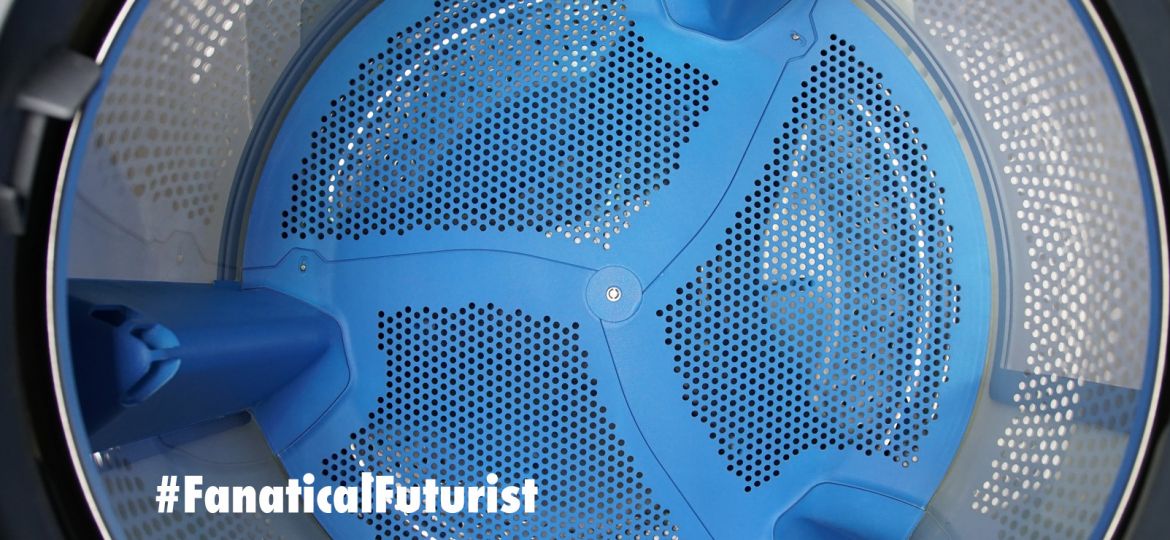
WHY THIS MATTERS IN BRIEF
Doing the laundry uses lots of detergent, energy and water, and creates grey water by product, but Xeros’ new polymer bead washing system cuts this down by over 80 percent.
Sometimes it’s easy to forget that products we take for granted, and use every day, can also be revolutionised by new technologies and innovative thinking, and this latest innovation is no exception. If you’ve stayed at a hotel recently there’s a good chance your clothes and towels were washed by polymer beads, that help your hotel’s laundry use eighty percent less water, seventy percent less energy and fifty percent less detergent. And as far as sustainability goes, that moves the dial.
Using specially modified washing machines that have a special drum, and that use significantly less detergent, energy and water, which means they also consequently produce less polluting grey water, than traditional washing machines, this week at CES 2018 the company behind the polymer beads invention, Xeros, showed off their new line up of products and announced plans to release a home version within the next two years.
How The New Xeros Polymer Bead System Works
Xeros showed off three things – their polymer beads, called XOrb, a new washing machine drum, the XDrum, and a filtration system, XFiltra. The UK based company has been trying to build a domestic product for a few years now, but over time they’ve come to the conclusion that instead of shrinking their 55 pound and 35 pound load commercial washing machines they’re instead going to try to convince washing machine manufacturers to incorporate the new drum into their machines, and so far, the company says two of the world’s largest washing machine manufacturers have signed up.
The beads work on stains in three ways. The first is mechanical, they’re made out of nylon and that helps lift stains as they move about the drum, secondly, they’re charged to attract stains, and thirdly the nylon they’re made out of becomes more porous at a lower temperature when wet, helping absorb the stain molecules before the beads are carried away from the clothes without the need for very hot water.
What makes the polymer beads so attractive to hotels and other companies that do a lot of laundry is that the Xeros system uses 80 percent less water than regular machines, and in order to do that and still deliver pristine sheets, the washer works differently.
Once the beads, which last for hundreds of washes, have done their thing they’re whisked away with the water and dirt and stored in a special sump that pumps them into the drum during the cycle, they then flow back to the storage housing through an opening in the drum.
If manufacturers don’t want to incorporate the drum and beads though Xeros is at least hoping they’ll embrace the XFiltra, a product that helps capture the synthetic fibers from fleece and other clothing that are making their way from the wash into oceans.
Washing just got a lot greener. And the beads are recyclable too… just in case you were wondering.
















